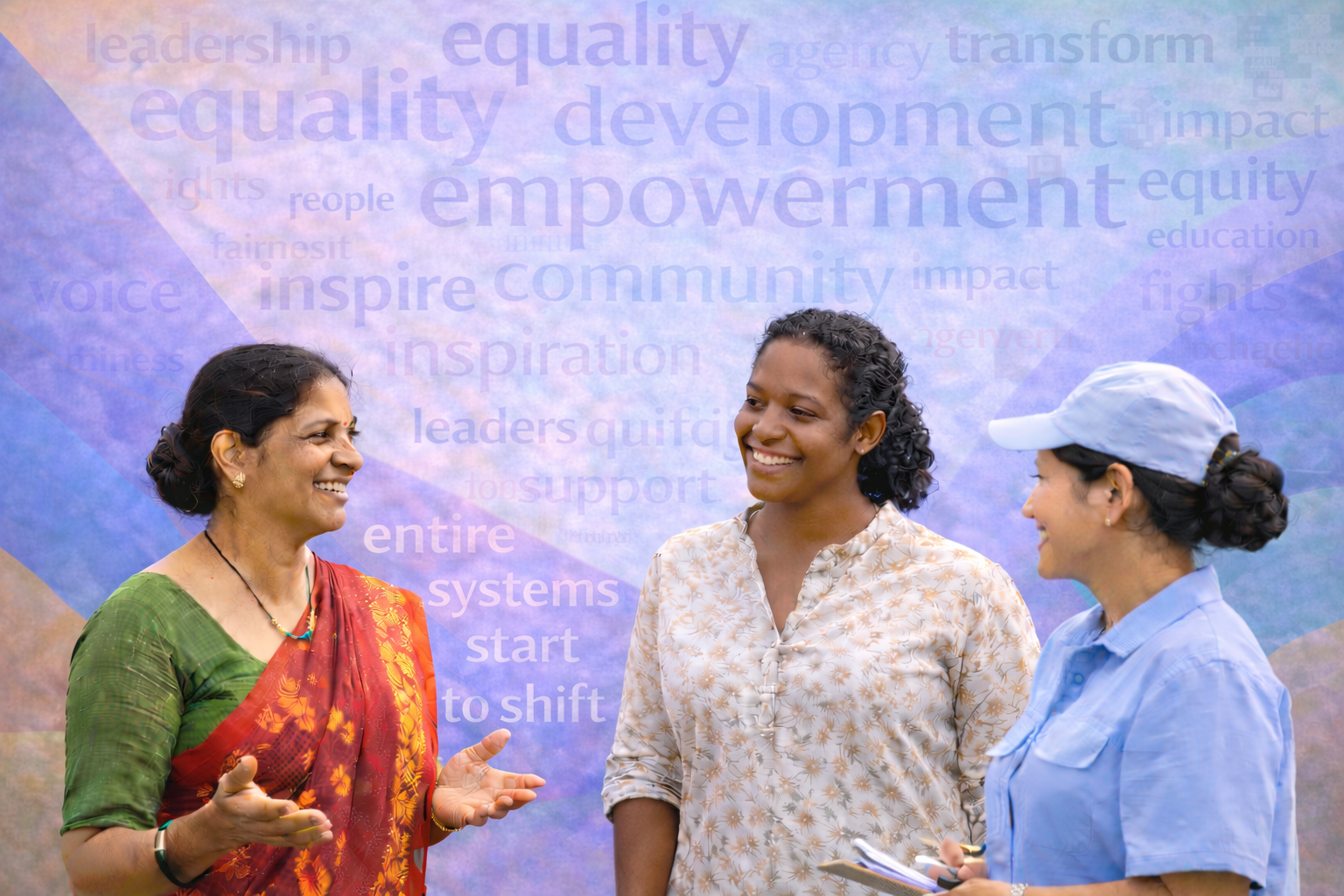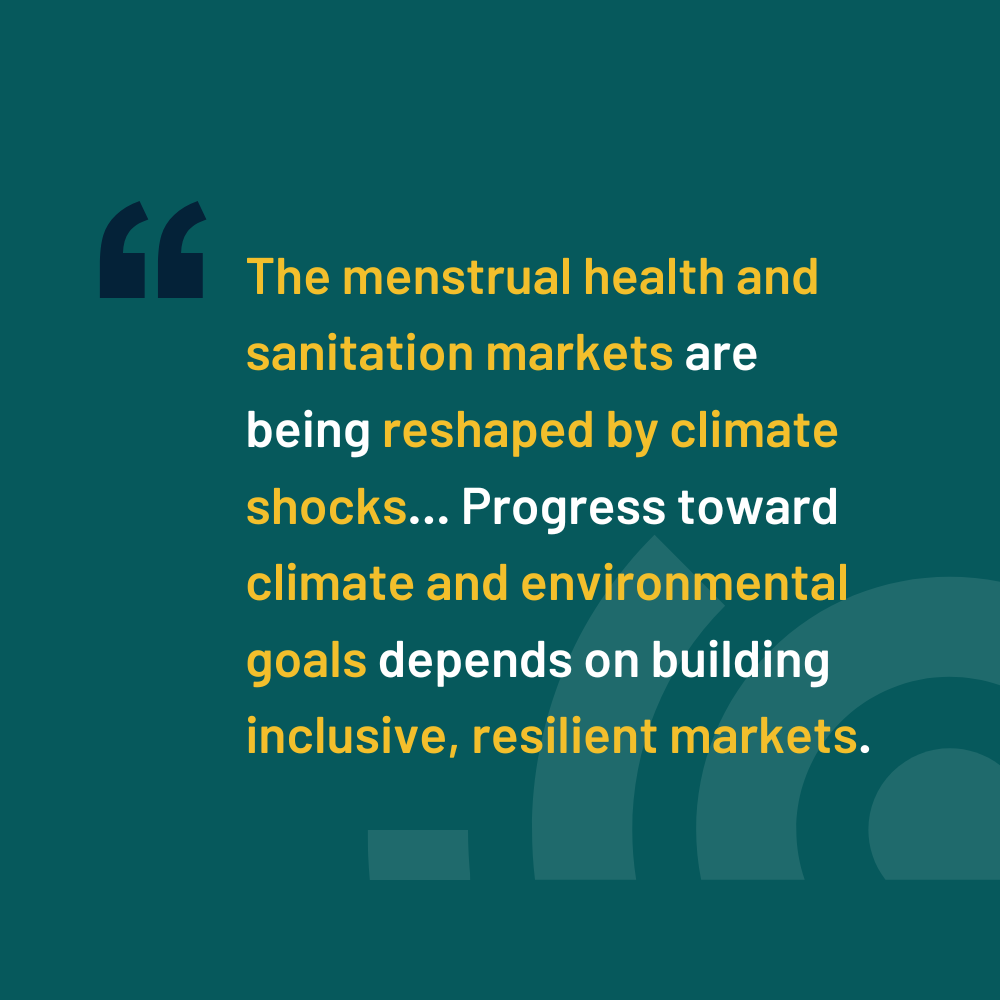
Next Generation Sanitation: harnessing the power of finance and innovation

On World Toilet Day 2024, SHF Board Chair, Cecilia Akintomide, and Executive Director, Dominic O'Neill, outline both the imperative and pathway to make the provision of safely managed sanitation, hygiene, and menstrual health financially sustainable while ensuring access for the most vulnerable.
For developing countries, the challenge of financing development is only getting greater. In particular, the Sustainable Development Goal for water, sanitation, and hygiene (SDG 6) is off track and facing an increasing multi-billion dollar financing gap. This is exacerbated by the decline of once reliable ODA financing from many bilateral governments.
Access to safely managed sanitation, a place to wash hands, or the means to manage menstruation safely, hygienically, and with dignity is a fundamental human right and a prerequisite for development. It is our collective responsibility to ensure that sanitation, hygiene, and menstrual health are adequately prioritized and funded.
To address this global challenge, we need new and bold approaches to financing development, embracing financial and technological innovations, involving the private sector, new sources of financing, building on country leadership, and using available ODA for WASH more effectively to catalyze and leverage further investment.
The Sanitation & Hygiene Fund (SHF) was established to precisely address the financing gap in sanitation, hygiene, and menstrual health. We have taken on the challenge of how to make the provision of safely managed sanitation, hygiene, and menstrual health financially sustainable while ensuring access for the poorest and most vulnerable. To achieve this, we look at the challenge through the lens of the sanitation economy and in particular Next Generation Sanitation, which has the potential to radically increase the number of people with access.
We focus on the following four areas. First, we encourage financial innovation that blends public and private investments: we know that poor sanitation can cost a country on average 1.3% of its GDP in terms of ill-health, lost productivity, and environmental pollution. We therefore need new financial models that consolidate the full economic and social value of access to safely managed sanitation. We also facilitate appropriate governance frameworks for regulation, compliance, public investment, and the enabling environment for the private sector as investors and service delivery agents; while ensuring that underserved communities are included in the sanitation economy.
We incentivise technological innovation, especially in Next Generation Sanitation (including non-sewered sanitation) and menstrual health products. Non-sewered sanitation is more difficult to invest in but is recognised as the main channel for the majority of the underserved to achieve access to safely managed sanitation. Finally, we ensure that sanitation is included in the climate financing plans on both mitigation and adaptation - unmitigated fecal waste is a very high source of methane, and sanitation systems are among the critical infrastructure to be damaged in floods and droughts, with cholera, as a result, continuing to be a deadly risk.
On World Toilet Day 2024, we stress the importance of partnerships to:
- Ensure that there is a credible and agreed financing plan for sanitation, hygiene, and menstrual health as well as increasing or at least maintaining ODA to this sector;
- Adopt sound economic approaches for a Sanitation Economy and Menstrual Health Marketplace to ensure progress on the financing of SDG6.2;
- Request the MDBs/IFIs to bring forward plans to finance sanitation, hygiene, and menstrual health for the most marginalized, and to incorporate sanitation, hygiene and menstrual health as a standard component of their development projects;
- Ensure climate finance for green and resilient non-sewered sanitation (Next Generation Sanitation) and a reduction in single-use menstrual product waste.
The upcoming One Water Summit will bring much needed political momentum to the water and sanitation sectors, as observed in the recent report of the Global Commission on the Economics of Water. We at SHF welcome the Summit; and will vigorously continue to explore innovative ways to unlock increased public and private finance. This is the only way we can ensure universal and sustainable access to sanitation, hygiene, and menstrual health.



